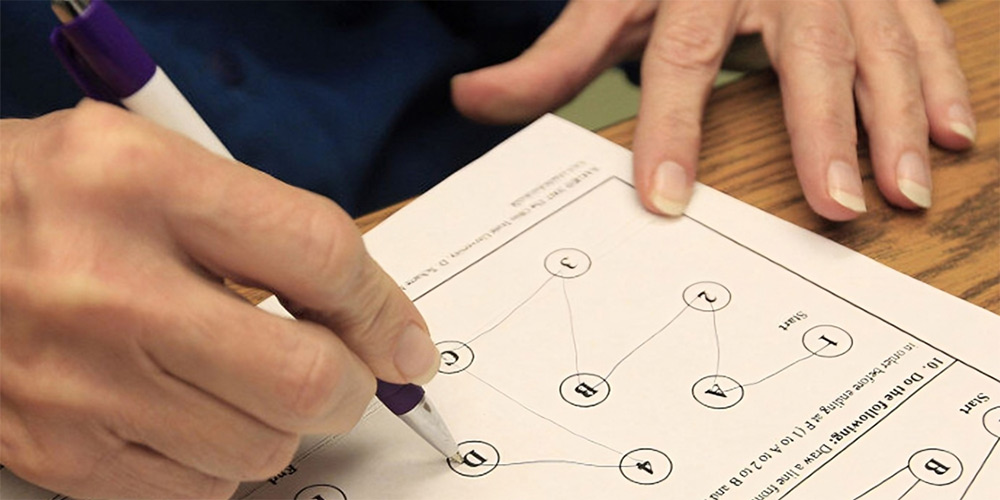Last Updated on May 24, 2024
Get to Know: Understanding Dementia’s Impact and the Importance of Early Detection
Dementia is a relentless tide that washes away one’s memories and erodes independence. It is a progressive condition that disrupts the thought and memory processes of our minds, causing memories to fade, attention to falter, and decision-making to become difficult. Millions grapple with its effects, and for many, the journey to diagnosis can be as frustrating as the condition itself.
Despite the challenges, early detection is a crucial opportunity. Like a compass pointing toward safety in the storm, early dementia diagnosis provides a guiding light for individuals and their families. It empowers proactive management and access to support services, fostering a better quality of life despite the condition’s challenges.
By understanding the impact of dementia and the importance of early detection, we can navigate its waters with resilience and hope.
The SAGE Test: A Promising Alternative for Dementia Diagnosis
The SAGE test for Dementia was developed by Douglas Scharre, a Neurologist from the Ohio State University Medical Center. The test offers a straightforward and rapid assessment for dementia at home, presenting a practical and economical option compared to conventional diagnostic approaches.
Sage Test for Dementia is available online for free and comprises four pages, typically taking 10-15 minutes to complete. There is no time limit, and it is advised not to check the time while taking it due to some questions. Each of the four versions is interchangeable, and only one needs to be taken.
It is essential to understand that the test does not diagnose a specific disorder but flags potential cognitive impairment, warranting further evaluation by a healthcare professional.
Scoring below six points out of the total 22 on the SAGE Test for Dementia typically suggests the necessity of follow-up by a physician. Studies indicate that the test accurately identifies 80% of individuals with mild cognitive issues, while 95% of those without impairment receive normal scores. This underscores its validity and reliability in detecting mild cognitive impairment.
SAGE Test for Dimenia: Easy Steps for Taking the Dementia Assessment
- Obtain a printed copy of the test or access it online.
- Carefully review the instructions.
- Answer each question on the test with precision.
- Calculate the score by tallying the number of correct responses.
- Refer to the provided norms to assess if there are indications of cognitive impairment based on the score.
When Should the SAGE Test for Dementia Test be Taken?
The response to this question may be different for everyone, but there are some basic guidelines that can help.
Symptoms of Dementia
If signs of dementia, like memory loss or challenges in daily tasks, are present, consulting a healthcare provider is crucial. In such cases, conducting a self-assessment test like the SAGE Test may be recommended by your doctor.
Age Above 65
For individuals aged 65 and above, routine cognitive screening as part of regular healthcare is advised. This proactive approach aids in identifying early indicators of dementia, facilitating timely intervention and symptom management.
Family History or Risk Factors
A family history of dementia or other risk factors like hypertension or diabetes may warrant regular cognitive screening, even without symptoms. This proactive measure helps in early detection and appropriate management strategies.
What Makes the SAGE Test an Excellent Tool for Diagnosing Dementia?

- The sage test for Dementia is a user-friendly self-administered questionnaire, eliminating the need for a clinician or trained professional for its administration.
- It offers a swift and dependable evaluation of cognitive function, focusing on memory, attention, language, and visuospatial abilities, all commonly impacted by dementia.
- Sage test affirming its reliability and validity in detecting dementia.
- As a screening tool, it effectively identifies individuals warranting further evaluation and diagnosis for dementia.
- It serves as a tool for tracking dementia progression over time and assessing the efficacy of treatment interventions.
- Widely accessible and readily available, the test is beneficial for both healthcare professionals and individuals concerned about their cognitive well-being (available for download at sagetest.osu.edu).
Read more: World Alzheimer’s Day: Shinn Alzheiming a Light oer’s Disease
Takeaway
The sage test for Dementia emerges as a transformative tool in the landscape of dementia diagnosis. Its user-friendly design and comprehensive assessment offer a beacon of hope amidst the confusion and frustration often associated with traditional diagnostic methods.
By empowering individuals to take control of their cognitive health and facilitating early detection, the test plays a pivotal role in guiding proactive management strategies and improving the quality of life for those affected by dementia. With its proven efficacy and accessibility, the test stands as a testament to the power of innovation in healthcare.
As we navigate the challenges of dementia, let us embrace the potential of tools like the SAGE Test to illuminate the path forward and instill hope in the journey toward improved cognitive well-being.





